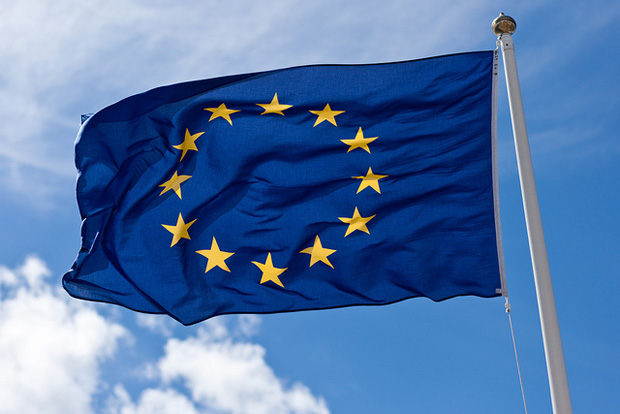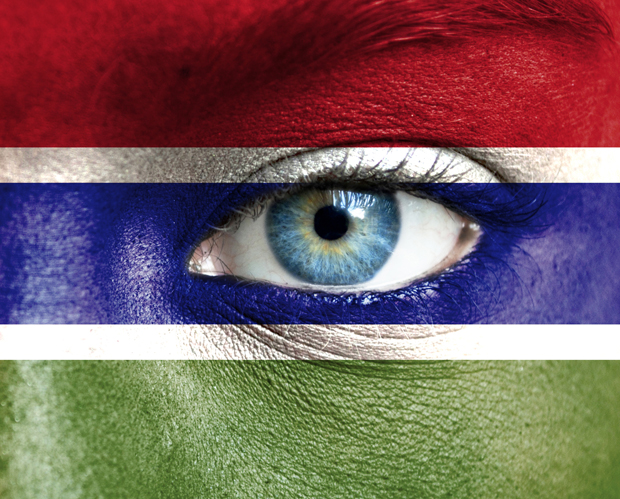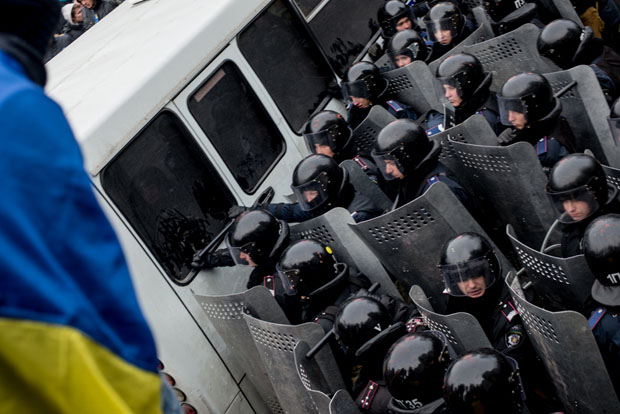15 May 2014 | Europe and Central Asia, European Union, News and features

(Image: Håkan Dahlström)
A new set of guidelines laid out by the EU, and contributed to by Index on Censorship, will specifically look at freedom of expression both online and offline, and includes clauses, among others, on whistleblowers, citizens’ privacy and the promotion of laws that protect freedoms of expression.
According to the Council of the European Union press statement, freedom of opinion should apply to all persons equally, regardless of who they are and where they live, affirming this freedom “must be respected and protected equally online as well as offline”.
Significant consideration within the EU Human Rights Guidelines on Freedom of Expression Online and Offline, adopted on 12 May, is paid to whistleblowers with the council vowing to support any legislation adopted which provides protection for those who expose the misconduct of others, as well as reforming legal protections for journalists’ rights to not have to disclose their sources.
Reinforcing this, the new guidelines enable the Council to help those, journalists or others, who are arrested or imprisoned for expressing their opinions both online and offline, seeking for their immediate release and observing any subsequent trials.
Member states also have an obligation to protect their citizens’ right to privacy. In accordance with article 17 of the International Covenant on Civil and Political Rights (ICCPR), the guidelines claim “no one should be subject to arbitrary or unlawful interference with their privacy“, with legal systems providing “adequate and effective guarantees” on the right to privacy.
The guidelines will provide guidance on the prevention of violations to freedom of opinion and expression and how officials and staff should react when these violations occur. The guidelines also outline the “strictly prescribed circumstances” that freedom of expressions may be limited; for example, operators may implement internet restrictions (blockages etc.) to conform with law enforcement provisions on child abuse. Laws under the new guidelines that do adequately and effectively guarantee the freedom of opinions to all, not just journalists and the media, must be properly enforced.
“Free, diverse and independent media are essential in any society to promote and protect freedom of opinion and expression and other human rights,” according to the Council press release. “By facilitating the free flow of information and ideas on matters of general interest, and by ensuring transparency and accountability, independent media constitute one of the cornerstones of a democratic society. Without freedom of expression and freedom of the media, an informed, active and engaged citizenry is impossible.”
Read the full set of guidelines here.
This article was posted on May 15, 2014 at indexoncensorship.org
14 Apr 2014 | Africa, Europe and Central Asia, European Union, Gambia, News and features

Gambian President Yahya Jammeh has bowed to EU pressure to implement political reforms — including changing the country’s restrictions on the media.
This comes barely a year after he rejected a proposal from the European Union to introduce reforms, including repealing draconian media laws, establishing a National Human Rights Commission as proposed by the Commonwealth Secretariat, and abolishing the death penalty within 24 months.
In January last year President Jammeh told local media The Point and Observer newspapers that he will not be blackmailed by the European Union with what he described as “chicken change” to accept what is not in the interest of the Gambia people. He said the “Gambia will never be colonised twice”.
The EU delegation held a closed door meeting with Jammeh last Tuesday to discuss the way forward. Dominique Delacour, the Dakar-based European Union ambassador, told a local journalist that: “We discussed also the issue of consular affairs issuing visas to Gambians. So we had a very frank discussion on an array of issues, which was very productive. The Gambian side also presented their main strategy in terms of governance, and human rights and development cooperation,” she said.
Delacour said the delegation was also in Banjul to present to the Gambian leader with the result of the their preliminary discussions in the country, as well as the declaration that came out of the recent EU-Africa summit held in Brussels.
The European Union is the leading aid provider for the Gambia with a total of €65.4 million of grants allocated for for the period 2008 -2013.
But its demands for more political freedom are seen by the Gambian regime as interference in the country’s domestic politics. Article eight refers to the political dimension of the Cotonou Agreement, the legal framework covering political, developmental and trade relations between the EU and African, Caribbean and Pacific countries, of which the Gambia is a signatory.
A group of Gambian rights activist led by the Amadou Scatted, Janneh former Information Minister who was jailed for attempting to stage a non-violent protest against the dictatorship in Gambia has present a set of recommendation to the human rights bodies ahead of the Universal Periodic Review meeting in Switzerland later this year. This is with a view to pressure authorities to carry out comprehensive reform such as the repealing all draconian media laws, and the protection of human right in general.
However, the Gambia National Assembly on Tuesday unanimously adopted two books entitled A Million Reasons to Leave the Commonwealth and How the Tragic Consequences of British Looting and Misrule in The Gambia Inspired the Foundation of the United Nation’s Drive for Decolonisation in January 1943 and Beyond.
According to pro-government newspaper Daily Observer, the books were authored by the president with a view to reaffirm its commitment to end Gambia’s decade-long membership to the Commonwealth, the 53-member organisation headed by the Queen of England.
Parliamentarian Seedy Njie said in a motion in the first session of the legislative that the content of the books were reason enough for the Gambia to leave the commonwealth. Meanwhile, NJie’s statement has confirmed the argument of Mr Halifa Sallah on the content of the book authored by the authoritarian leader.
This article was posted on 14 April 2014 at indexoncensorship.org
25 Mar 2014 | Americas, Europe and Central Asia, Events, United Kingdom, United States
Over a year after the Leveson report came out, regulation of the British press is still a question of intense debate. Meanwhile, the NSA/Snowden revelations – and the related detention of David Miranda (supported recently by British courts) – open up core questions of how investigative and public interest journalism can function in a world of mass surveillance. In the US, while Guardian editor-in-chief Alan Rusbridger rightly praises the first amendments, Obama himself has a growing reputation as a president who has pursued sources and journalists through the courts.
Join us on a Google Hangout with Guardian Digital journalist, James Ball (now based in New York) and LA Times London correspondent, Henry Chu, hosted by our Editor, Online and News, Sean Gallagher for a lively debate around the media freedom on either side of the Atlantic.
The recording will be broadcast live via Index’s Google+ and YouTube accounts from 10am (EST)/ 2pm (GMT) on Wednesday 26th March. Get involved in the discussion on our Twitter feed and website. Visit the Google+ page here and the YouTube page here.
20 Jan 2014 | Europe and Central Asia, News and features, Ukraine

Clashes in Kiev between police and protesters on 19 January (Image: Julia Kochetova/Demotix)
At least 26 journalists were injured during the clashes between police and protesters in Kiev on 19 and 20 January.
According to the Institute for Mass Information (IMI), most of the reporters were wounded by stun grenades or rubber bullets used by the police while dispersing a rally in central Kiev, in protest at the new repressive legislation adopted in Ukraine last week.
IMI’s reports says the riot police on several occasions particularly targeted journalists, despite them having “Press” signs on their equipment and clothes. For instance, police officers shook a bus, while several journalists were filming the events from its roof, leading to several reporters falling off. The police attacked one of them, Denis Savchenko, a cameraman of 5 Channel. They tore his “press” badge of him and detained him briefly. The reporter now at home, with his leg broken.
Anatoly Lazarenko, a reporter of Spilno.tv online television, was shot in the hand while broadcasting live from the scene of the clashes. The reporter says the police aimed specifically at him to prevent him from reporting.
The legislation, adopted in Ukraine on 16 January 2014, has already been dubbed “the Dictatorship Law” by the country’s civil society. According to legal analysis done by experts of the Centre for Civil Liberties and Euromaidan SOS initiative, the law violates legislative procedures, runs counter to international treaties and domestic legislation and seriously restrict rights and freedoms of Ukrainian citizens.
The new law particularly targets free speech. It criminalises defamation, provides for liability for “distribution of extremist materials” and introduces a requirement for the registration of online media. It is now also forbidden to collect and disseminate information concerning law enforcement officers and judges.
The repressive law was officially signed by the President Yanukovich on 17 January, and has already come into force.
The full text of the independent legal analysis of the human rights related bills, adopted in Ukraine, is available here.
This article was posted on 20 January 2014 at indexoncensorship.org



